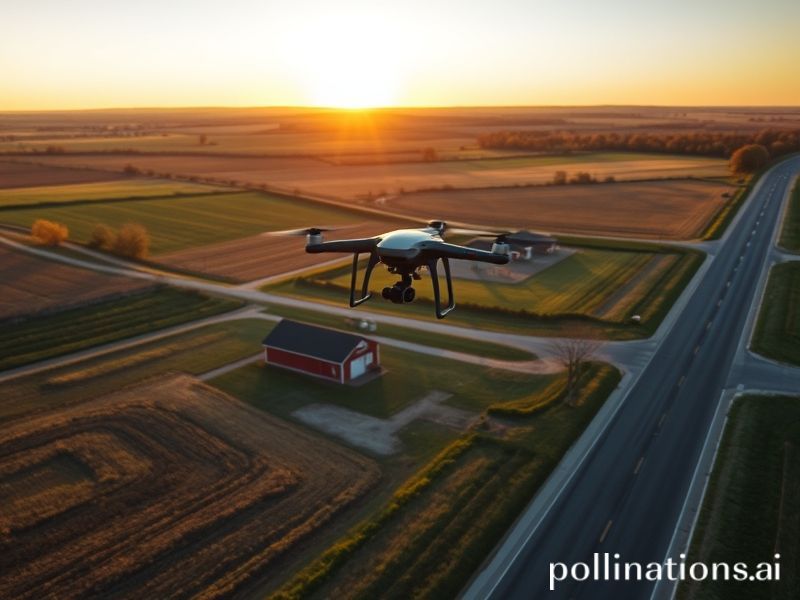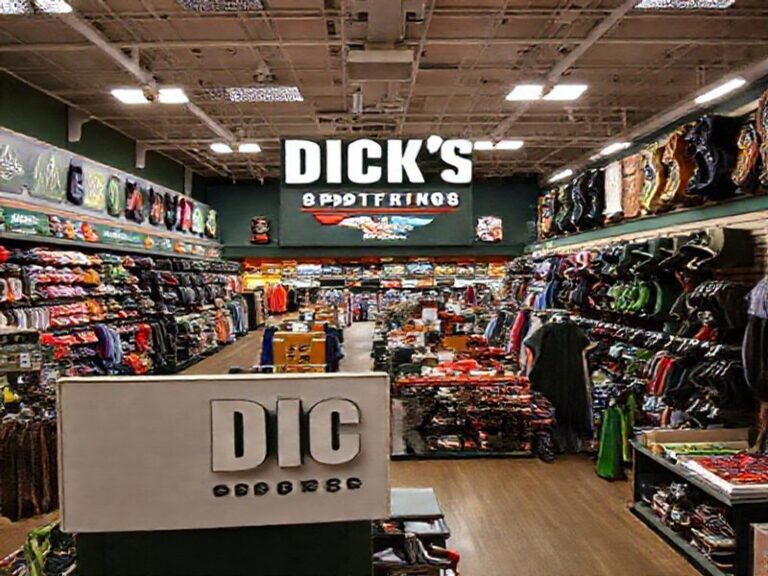Marion County, Iowa: How a Blockchain Glitch in Corn Country Just Rattled Global Markets
The World Watches Marion County, Population 65,920, Like It’s the Last Honest Place on Earth
By Dave’s Foreign Correspondent, filing from somewhere with better coffee
Marion County—nestled in that geopolitical afterthought known as “central Iowa”—has spent the last 170 years perfecting the art of looking irrelevant. Its biggest city is Pella, famous for windmills that Dutch immigrants erected to remind themselves of home and, presumably, to keep the existential dread at a safe distance. Yet this week, as bond-yield curves in Frankfurt do interpretive dance and TikTok teens in Jakarta debate ethanol subsidies, the planet’s institutional eyeballs have swiveled toward Marion County with the urgency reserved for oil shocks or celebrity divorces. Why? Because Marion County just became the canary in everyone’s coal mine, tweeting a warning the rest of us keep pretending we can’t translate.
The trigger was delightfully mundane: an audit of the county’s blockchain-based land registry, a pilot program so Midwestern in its modesty that it was introduced at a Rotary breakfast between the raffle and the funeral announcements. The auditors discovered that 12 percent of the parcels were double-pledged as collateral on three continents. Suddenly, a spreadsheet in Knoxville, a derivatives desk in Singapore, and a sustainability-linked loan in Helsinki all coughed up the same digital IOU—like a global game of musical chairs where the music stopped and everyone was sitting on a cornfield outside Otley.
To economists, this was merely another Thursday. To everyone else, it was proof that the hyperconnected financial nervous system now reaches places that still think “cloud computing” is when you keep your receipts in the storm cellar. Marion County’s ledger glitch rippled through markets the way a sneeze in Caracas once sank the bolivar: instantly, ruthlessly, and with a complete lack of interest in the local high-school mascot (the Pella Dutch—yes, really).
International commentators tried to frame the episode as a cautionary tale about “rural financialization,” which is academic code for “we exported our risk to places that still have county fairs and hoped no one would notice.” The Chinese financial press, never shy about schadenfreude, ran a cartoon of a straw-hatted Midwestern farmer juggling flaming soybeans while Wall Street bankers warmed their hands. European regulators issued a 400-page white paper titled “Distributed Ledgers and Pastoral Folly,” which will be ignored right up until the next bailout.
Meanwhile, the United Nations dispatched a fact-finding mission—two interns, one drone, and a translator app convinced that “tractor pull” is an Olympic sport. Their preliminary finding: Marion County’s soil is now technically owned by a Cayman Islands shell company specializing in carbon offsets, which plans to plant switchgrass and sell the right to feel guilty to German commuters. The locals, displaying the stoicism of people who once survived both Dutch Elm Disease and disco, shrugged and asked if the switchgrass would interfere with deer season.
There is, of course, a darker punchline. Marion County’s dilemma is a scaled-down version of the global shell game we all play: pledge, re-pledge, securitize, and pray. The difference is that when the music stops in Marion County, you can still see who’s left standing without a Zoom call. The rest of us hide behind firewalls, press officers, and the comforting illusion that geography still buffers risk. Marion County just proved buffering is obsolete; even the cornfields are leveraged 30-to-1.
So the world stares at 571 square miles of soybeans and conscience, hoping to learn something it already knows but would rather forget. And Marion County, bless its pragmatic heart, continues to hold church auctions and Friday-night football, treating planetary attention the way it treats a tornado siren: acknowledge, shelter, then resume the potluck. If the county seat ever gets a revolving credit facility named after it—say, the Knoxville Accordion Swap—we’ll know the lesson didn’t stick.
Until then, Marion County remains what it has always been: a quiet reminder that in the age of infinite replication, the only thing we can’t counterfeit is a place that still believes a handshake matters. The rest of us should be so lucky—and so doomed.







